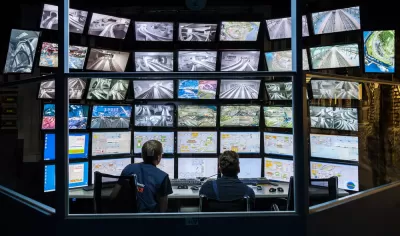Over the next two decades, bold estimates have local governments around the world spending over $41 trillion on "smart cities." But what are smart cities, and how do we measure return on investment?

Apparently, the future is now. According to some experts, "Cities around the world will invest a total of about $41 trillion over the next 20 years to upgrade their infrastructure and benefit from the network of connected devices known as the Internet of Things."
That astronomical figure is an estimate, but it's a telling one. Aneri Pattani writes, "Smart technology uses the Internet of Things to gather data, connect components across the city and impact multiple departments or services in order to improve people's quality of life. Spending on smart technology has grown from 0.7 percent of city IT budgets in 2005 to 4.1 percent in 2015."
Even smaller municipalities are investing in tech-oriented "solutions" created to address civic challenges. "The Center for Digital Government estimates U.S. cities will spend about $52.4 billion on technology in 2016. That is a 2.5 percent increase over their spending in 2015. The federal government will spend about $89.8 billion on technology in 2016, just a 1.5 percent increase over its spending last year."
Of course, there's no set definition for "smart cities," and no way to accurately measure the size of the market. At this early stage, it's also difficult to determine exact ROIs for new government technologies. Often, improvements to perceived quality of life can persuade cities to adopt, despite that uncertainty.
The article encourages public-private partnerships on new tech, going beyond selling a single "solution" and moving on. To bring in lasting public sector business, companies should be willing to provide guidance around implementation.
FULL STORY: Building the city of the future — at a $41 trillion price tag

Maui's Vacation Rental Debate Turns Ugly
Verbal attacks, misinformation campaigns and fistfights plague a high-stakes debate to convert thousands of vacation rentals into long-term housing.

Planetizen Federal Action Tracker
A weekly monitor of how Trump’s orders and actions are impacting planners and planning in America.

In Urban Planning, AI Prompting Could be the New Design Thinking
Creativity has long been key to great urban design. What if we see AI as our new creative partner?

King County Supportive Housing Program Offers Hope for Unhoused Residents
The county is taking a ‘Housing First’ approach that prioritizes getting people into housing, then offering wraparound supportive services.

Researchers Use AI to Get Clearer Picture of US Housing
Analysts are using artificial intelligence to supercharge their research by allowing them to comb through data faster. Though these AI tools can be error prone, they save time and housing researchers are optimistic about the future.

Making Shared Micromobility More Inclusive
Cities and shared mobility system operators can do more to include people with disabilities in planning and operations, per a new report.
Urban Design for Planners 1: Software Tools
This six-course series explores essential urban design concepts using open source software and equips planners with the tools they need to participate fully in the urban design process.
Planning for Universal Design
Learn the tools for implementing Universal Design in planning regulations.
planning NEXT
Appalachian Highlands Housing Partners
Mpact (founded as Rail~Volution)
City of Camden Redevelopment Agency
City of Astoria
City of Portland
City of Laramie





























